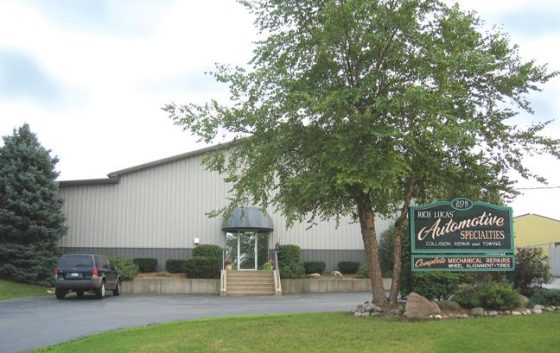Know Your Rights
How Do I Choose A Collision Repair Facility?
As the owner of a motor vehicle involved in an accident or submitting an insurance claim, you have the right to choose the shop where you wish to have your vehicle repaired. No law requires you to get more than one estimate, nor are you obligated to have your vehicle repaired at the “cheapest” shop or one “preferred” by the insurance company. You should select a repair facility based on their skill, service, knowledge, reputation and guarantee of their workmanship.
Remember, the body shop is fixing YOUR vehicle for YOU. If you’re making an insurance claim, the insurer pays the bill, but most states prohibit the insurer from requiring you to use a particular shop — that means, ultimately, no matter what you hear, THE BODY SHOP IS YOUR CHOICE.
What Is A DRP Body Shop?
Direct Repair Program (DRP) is another name for an insurance company’s listing of shops, such as: State Farm’s “Service First”, Allstate’s “PRO”, Progressive’s “Total Pro or Concierge”, etc. DRP repair facilities have been solicited by the insurance company which sends customers their way in exchange for discounted repairs, such as lower labor rates or parts discounts. The consumer is not required or obligated to use a DRP repair facility.
Automotive Specialties made a decision many years ago to decline any DRP contracts which allows us to work WITH all insurance companies but work FOR our customer.
Must I Notify My Insurance Company Before Repairs?
Yes, insurance policies require that you notify the company and tell them where the damaged vehicle may be inspected. The insurance company may wish to send an adjustor of their choice to inspect the vehicle or review the shop’s estimate prior to repair.
Who Pays The Repair Bill?
You must arrange for payment. Your insurance policy states the insurance company will pay for repairs less any deductibles or depreciation.
What If Repair Costs Exceed The Original Estimate?
Often times in the collision repair process additional damages are found resulting in more labor and parts needed to restore the vehicle to pre-accident condition. Parts sometimes come in at higher prices than quoted. These additional charges are called a supplement and will be covered by the insurance company with supporting paperwork from the repair facility.
If There Is A Problem With The Repair Job, Who Should You Contact?
First, contact the manager of the repair shop. If your problem is not resolved, contact your insurance company claims manager.

Vehicle Data: What You Need to Know

If you drive a newer model vehicle, it is most likely equipped with telematics or vehicle data. As you use your vehicle, it is collecting data and transmitting it wirelessly to the manufacturer. By 2022, 87% of new vehicles sold in the United States will have this feature installed. However, nearly 75% of drivers are unaware their vehicle’s data is being collected.
While telematics can pinpoint your GPS location, it is far more than a one time tracking device. The information gathered helps chart the health of your vehicle (i.e. fuel use, emissions) and analyzes how you drive (i.e. acceleration, braking, steering) which provides repair and maintenance recommendations to the manufacturer based on data collected.
Gathering repair and maintenance data are not new concepts; the auto industry has had access to that for a number of years. However, this data is only sent to the vehicle manufacturer; not the owner or an independent technician that may be working on your vehicle. This puts the manufacturer in a very advantageous position. As a result, the vehicle owner is left with limited repair or maintenance options outside the dealership which may result in higher costs.
If you think vehicle owners should be the ones controlling who can directly access and control this data, you are not alone. Nearly 90% of consumers share this thought, as does the Auto Care Association.
As a consumer and vehicle owner, there are actions you can take. Learn more about your rights by reading the full Driver Bill of Rights, available at YourCarYourData.org. Demand to know what data was collected from your vehicle, who received that data, and how it will be used.
By doing your research and due diligence, you can help increase vehicle data awareness and its ultimate impact on consumers.
Automotive Specialties is here to answer all of your automotive questions. Explore our website or call us at (630) 553-0397 today. We look forward to serving you!
Sources
https://automotive-specialties.com/
http://www.brakeandfrontend.com
Photo Link:
https://stock.adobe.com/images/machine-learning-and-ai-to-identify-objects-image-recognition-suspect-tracking-speed-limit-radar/241808965






